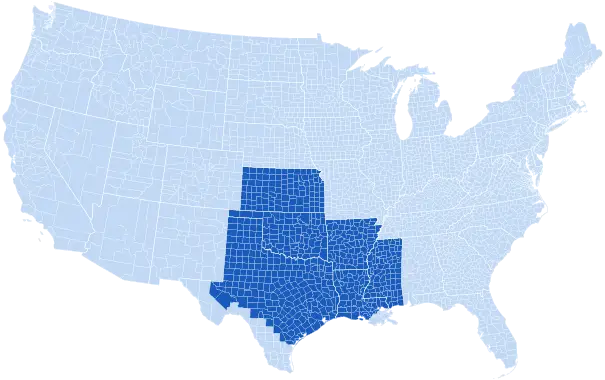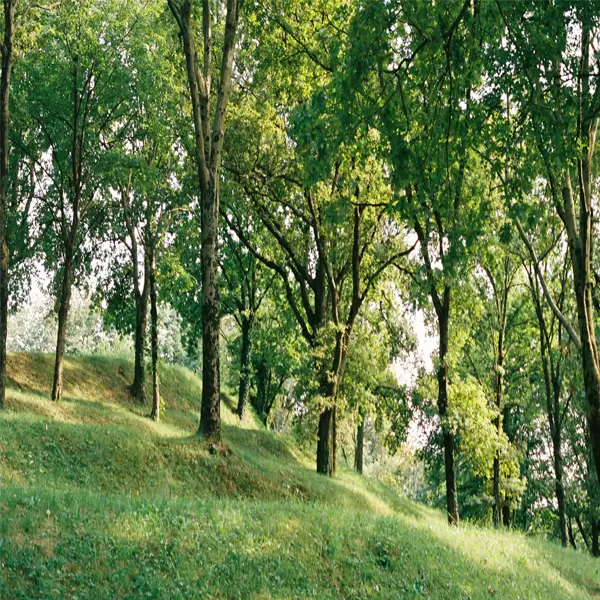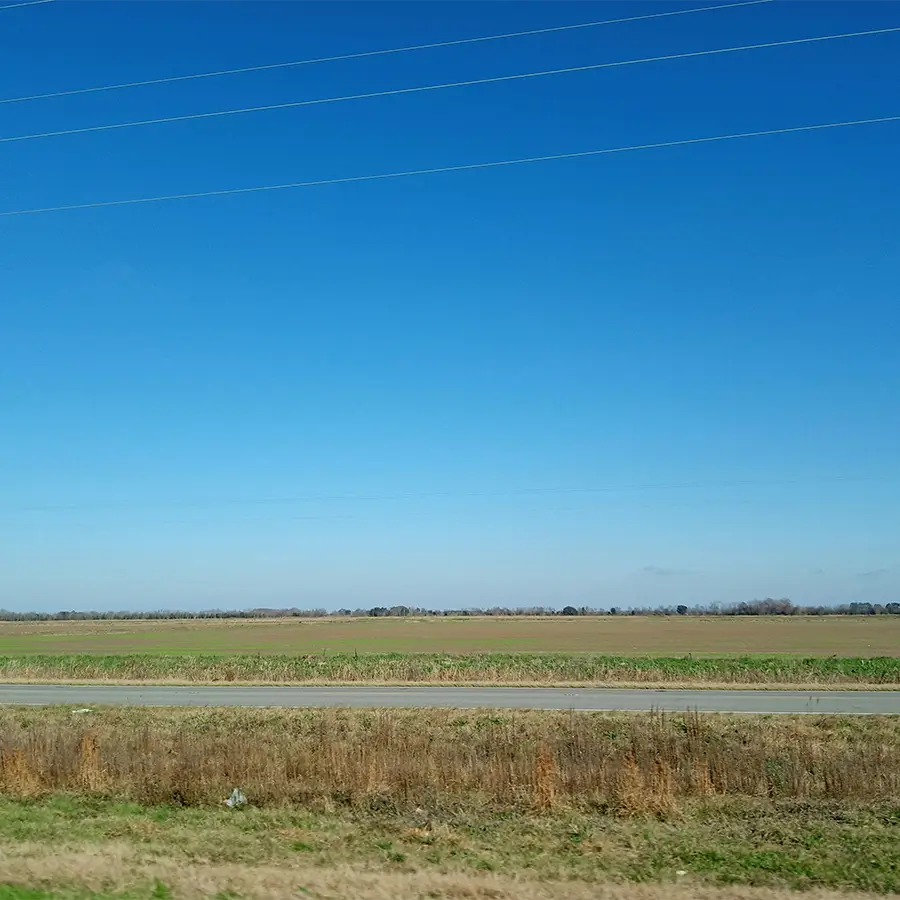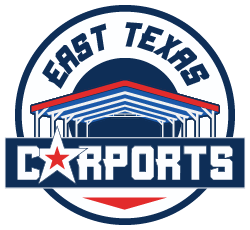Valentine's Sale ends in
Service Area

Serving 6 States—and Growing!
East Texas Carports delivers premium custom metal buildings, steel carports, and workshops across Texas, Oklahoma, Arkansas, Louisiana, Kansas, and Mississippi, serving major metropolitan areas like Dallas-Fort Worth, Houston, Oklahoma City, Little Rock, New Orleans, Wichita, and Jackson, plus hundreds of rural communities throughout the central and southern United States.
From bustling urban centers to remote country properties, our experienced team provides custom-built solutions tailored to your specific needs, combining expert craftsmanship with efficient regional logistics for professional installation and dependable delivery across our six-state service area.
Common Obstacles You May Encounter

Urban Areas
Installing custom metal buildings in major cities presents unique zoning, permitting, and logistical challenges. East Texas Carports helps customers throughout Dallas-Fort Worth, Austin, Houston, San Antonio, Oklahoma City, Wichita, Little Rock, Baton Rouge, Jackson, and other metro areas navigate these obstacles seamlessly.
Zoning and Permitting Requirements
Large cities in our service area enforce strict zoning laws and building codes affecting:
- Building size and height restrictions
- Setback requirements from property lines
- Approved materials and structural designs
- Foundation and anchoring specifications
Contact your local permit office before starting any metropolitan metal building project to confirm property regulations. Rules vary significantly between municipalities and neighborhoods. Renters need written landlord approval before installation begins.
Urban Logistical Considerations
Metropolitan environments present additional challenges beyond legal requirements:
- Limited truck/trailer access for delivery and installation
- Restricted hours due to noise ordinances or HOA regulations
- Road closure or sidewalk permits during installation
- Traffic congestion affecting delivery schedules
Planning for these factors prevents costly delays and rescheduling. We recommend addressing all urban considerations before scheduling installation to ensure smooth project completion.

Gulf Coast Region
The Gulf Coast region (Texas, Louisiana, Mississippi) has the nation's strictest wind load requirements due to hurricane vulnerability. Cities like Corpus Christi, Galveston, New Orleans, and Biloxi enforce rigorous codes for high-wind structural stability.
Coastal Wind Requirements
Coastal areas often exceed standard wind thresholds. Metal buildings rated up to 120 mph (14-gauge) and 140 mph (12-gauge) may not meet enhanced coastal zone requirements. Some regions mandate additional engineering certifications or alternative construction methods.
Verify local codes and wind zone maps before starting Gulf Coast projects—non-compliant structures risk permit denial.
Compliance Guidelines
- Coastal: Hurricane-rated reinforced buildings required
- Inland: More structural flexibility allowed
- County offices provide current requirements
Expert Support
Professional contractors specialize in high-wind coastal installations. They'll review your wind zone classification, provide compliant options, assist with permits, and suggest approved designs.
Proper planning ensures code-compliant, durable buildings in demanding coastal environments.

Hills and Mountains
Hilly and uneven terrain across Texas, Oklahoma, Louisiana, Mississippi, Arkansas, and Kansas creates significant metal building installation challenges. Areas like East Texas hills around Tyler, Oklahoma's southeastern mountains near McAlester, Arkansas's Ozarks near Fayetteville, and Central Texas hill country around Austin require specialized engineering and site preparation.
Terrain Installation Challenges
Uneven topography affects foundation stability, drainage management, and equipment access. Standard installation methods may require modification for steep grades, rocky soil conditions in Kansas's flint hills, or Mississippi's forested elevated areas with limited road access.
Verify local soil conditions and drainage requirements before starting hillside projects—improper preparation risks structural instability.
Site Preparation Guidelines
- Steep terrain: Custom foundations and drainage systems required
- Level ground: Standard installation methods applicable
- Local engineers provide soil analysis and grading recommendations
Specialized Solutions
Experienced contractors have expertise with challenging terrain installations across the region. They'll assess your site conditions, recommend appropriate foundation systems, coordinate necessary excavation, and ensure proper drainage.
Proper site preparation ensures stable, durable buildings even on the most challenging topography.

Southern Texas
Metal building contractors typically limit service south of San Antonio due to extensive travel distances impacting project logistics and cost-effectiveness. Areas around Corpus Christi, McAllen, Laredo, and Brownsville present challenges beyond geographic distance.
Access and Environmental Challenges
- Remote ranch properties with inadequate road access
- Extreme heat and drought conditions
- Sandy soils and caliche rock formations complicating installation
- Poor drainage patterns affecting site preparation
Regulatory Complications
- Stringent Gulf Coast wind load requirements
- Enhanced hurricane preparedness codes
- Extended border region permitting processes
- Unique zoning restrictions near Mexico
Economic Considerations
While some contractors consider projects within 30-45 minutes south of San Antonio case-by-case, travel costs and regional challenges make deep South Texas service economically unfeasible. Customers often achieve better results with local contractors familiar with regional soil conditions, building codes, and South Texas-specific installation requirements.
Major Cities We Serve
Texas Cities
📍 Dallas-Fort Worth Metroplex
📍 Houston & Greater Harris County
📍 Austin & Central Texas
📍 San Antonio & South Texas
📍 Longview & East Texas
📍 Tyler & Smith County
📍 Marshall & Harrison County
📍 Texarkana & Border Region
📍 Lufkin & Deep East Texas
📍 Nacogdoches & Surrounding Areas
📍 Midland-Odessa & West Texas
📍 Corpus Christi & Coastal Bend
Oklahoma Cities
📍 Oklahoma City Metro
📍 Tulsa & Northeast Oklahoma
📍 Norman & Cleveland County
📍 Edmond & North OKC
📍 Lawton & Southwest Oklahoma
📍 Stillwater & Payne County
📍 McAlester & Southeast Oklahoma
📍 Durant & Bryan County
Arkansas Cities
📍 Little Rock & Central Arkansas
📍 Fort Smith & River Valley
📍 Fayetteville & Northwest Arkansas
📍 Hot Springs & Garland County
📍 Pine Bluff & Jefferson County
📍 Jonesboro & Northeast Arkansas
📍 Conway & Faulkner County
📍 Texarkana Arkansas
Louisiana Cities
📍 Baton Rouge & Capital Region
📍 Shreveport & Northwest Louisiana
📍 Lafayette & Acadiana
📍 Lake Charles & Southwest Louisiana
📍 Monroe & Northeast Louisiana
📍 Alexandria & Central Louisiana
📍 Houma & Bayou Region
Kansas Cities
📍 Kansas City Metro (Kansas side)
📍 Topeka & Shawnee County
📍 Lawrence & Douglas County
📍 Manhattan & Riley County
📍 Salina & Saline County
📍 Hutchinson & Reno County
📍 Garden City & Southwest Kansas
Mississippi Cities
📍 Biloxi & Gulf Coast
📍 Gulfport & Harrison County
📍 Hattiesburg & Pine Belt
📍 Meridian & East Mississippi
📍 Tupelo & Northeast Mississippi
📍 Columbus & Golden Triangle
📍 Vicksburg & River Region
Expanding Our Reach: Serving More Communities
East Texas Carports began serving local communities including Longview, Tyler, Mount Pleasant, Sulphur Springs, Lufkin, Nacogdoches, Jacksonville, Marshall, Texarkana, and Shreveport, Louisiana. Today, we've expanded across multiple states, delivering custom metal buildings to major markets like Dallas-Fort Worth, Houston, Austin, San Antonio, Midland, Odessa, Oklahoma City, Little Rock, Wichita, New Orleans, Baton Rouge, Lafayette, Alexandria, and Jackson.
Consistent Quality Across Growing Markets
Our expansion into Texas metropolitan areas, Oklahoma cities, Louisiana parishes, Arkansas communities, Kansas markets, and Mississippi regions maintains our founding commitment: exceptional craftsmanship, dependable service, and custom metal buildings built to last. Each new service area represents opportunities to build lasting customer relationships while serving diverse geographic needs.
Future Growth Plans
Continued demand drives our expansion throughout Texas, Louisiana, Oklahoma, Arkansas, Kansas, and Mississippi. We're committed to serving more communities while maintaining the quality and attention to detail that built our reputation across East Texas and beyond.
Expert Local Service
Our experienced team understands regional building codes, soil conditions, and weather requirements across our six-state service area. Whether you're in rural East Texas, urban Dallas-Fort Worth, coastal Louisiana, or anywhere between, we'll guide you through local requirements and create the perfect metal building for your location and needs.

